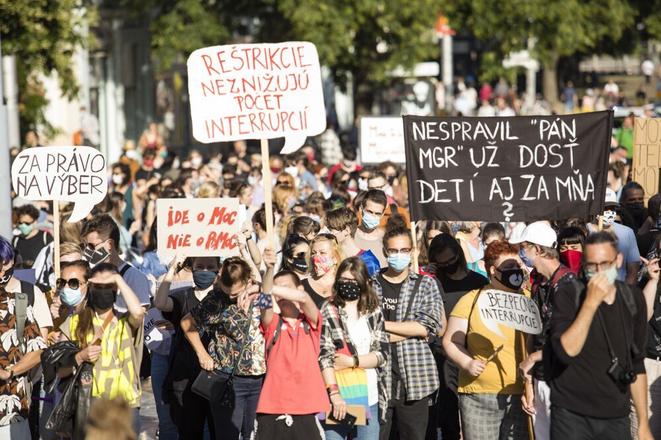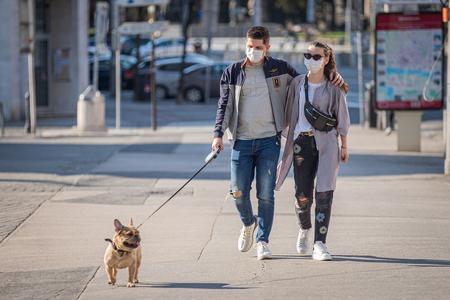Our paywall policy:
The Slovak Spectator has decided to make all the articles on the special measures, statistics and basic information about the coronavirus available to everyone. If you appreciate our work and would like to support good journalism, please buy our subscription. We believe this is an issue where accurate and fact-based information is important for people to cope.
No more than six people can gather in public from Tuesday, October 13, unless they live in one household.
The new restriction was adopted by the cabinet on October 12, due to the worsening development of the coronavirus pandemic.
“We realise that in this situation it’s necessary to limit mobility and the socialisation of people in places where it’s not inevitable,” said Health Minister Marek Krajčí (OĽaNO), after the October 11 meeting of the central crisis staff.
Employees should be allowed to go to work and pupils to school, but all other activities should be restricted to a minimum.
Constitutional lawyers explain the ban
The version adopted by the cabinet does not give a clear explanation on whether it did not confuse the execution of the right of assembly and more commonly used term “to assemble”, according to constitutional lawyers.
“There’s a difference between what assembly means in common conversation,” Vincent Bujňák of Comenius University’s Faculty of Law, told the Sme daily. “People think that this ban will also apply to a queue of people in front of a shop, but it’s not true.”
As he added, “if you don’t throw the Collection of Laws into the fire, having a barbeque out in nature is not the execution of a political right, not even in a group of seven or more people.”
Several other lawyers dealing with constitutional law who were addressed by Sme agree.
If the government wanted to reduce mobility by banning people to meet in larger groups, it would have to limit freedom of movement in order to protect public health, Bujňák explained.
What does public assembly mean?
The declaration of the national emergency on October 1 due to the second coronavirus wave enabled the government to restrict the right to peaceful assemblies or restrict public assemblies with permissions to an inevitable extent and inevitable time.
Slovak legislation stipulates the execution of the right of assembly to use freedom of speech and other constitutional rights and freedoms, to exchange information and opinions, and to participate in solving public and other society-related affairs by expressing attitudes and opinions.
A public space in this respect is defined as squares and streets, as well as other spaces under the open sky accessible for everybody, without any restrictions.
Also various street parades and demonstrations are considered public assemblies.



